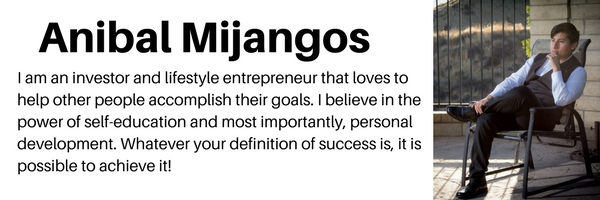
Hey, everyone!
I actually filmed a video for this post but the quality was so bad that I decided to not post it. So here is the text post! I'm going to refilm and post the video tomorrow. So if you don't want to read this post, then you can wait for tomorrow's video post :D
First and foremost, I will say that I am involved in network marketing and I'm a fan of the industry. I do believe that it may be a great opportunity for some people but it's not for everyone and that's okay. Although I am involved in the industry, I am not ignorant to the fact that there are a lot of illegal and fraudulent pyramid schemes out there that try to wear the mask of network marketing. Because of this, it's important that you understand these 3 red flags to prevent yourself from getting involved in a pyramid scheme. In the United States, 1 in 10 people is involved in network marketing. Therefore, there's a good chance that you'll eventually be approached by someone trying to share their opportunity with you. Don't be naive and just join something because they're your good friend. Do your research before making a decision.
How do I know these red flags?

Since I love entrepreneurship, I'm always talking to many people about business ideas. Because of this, many people have approached me with their "business opportunity." After sitting through so many presentations, I have been able to distinguish the scams from the legitimate opportunities. Fortunately, I have become a part of an amazing company that provides me the opportunity to build a legitimate business. Unfortunately, I personally know many people that have gotten involved in pyramid schemes. Combining my experience with their experiences, I want to share with you these 3 red flags that can help you tell if the "business opportunity" you're being presented is actually a pyramid scheme. By the way, if you find out that it's a pyramid scheme, I advise you to run the other direction. :D
Flag 1: CEO/Founder

This one should be common sense, but too many people completely disregard it. If the CEO/Founder is unknown or remains anonymous, then it's a big red flag that's it's a pyramid scheme. If the CEO/Founder is not mentioned at all on the company website or there is no information on Google about the person, then that tells me that they are already expecting the "company" to fall and they have their exit strategy ready. Why would I want to become a part of a company where the CEO/Founder purposely remains anonymous? If they are not even proud enough to claim ownership of their creation, why would I want to have any involvement?
Flag 2: Value
In order for any business to remain alive, the customer needs to give a business their money in exchange for something of value. This value comes from either a product or service. In a traditional business, money flows up their triangular structure. Why a triangular structure? Because there is only one CEO, few more supervisors, and many more employees. Drawing it out and it forms a triangle. In this triangle, money flows up to the top but value flows down to the bottom and ultimately to the end customer. In a legitimate network marketing business, it's the same thing. The only way a legitimate network marketing business remains alive is if there is something of value given to a customer in exchange for the customer's money. The customer gets value and the business gets money. Both sides are happy.

In a pyramid scheme, money flows up but there is no value flowing down because there are no customers. The only way that a pyramid scheme remains alive is if there are new recruits added to the "business" and those individual recruits add more money into the system. One can argue that in network marketing, there is a process of recruiting. In a legitimate network marketing business, financial compensation is only given based on the performance of the organization as a whole. So if there are many people in a single organization, but none of them make sales, then no one will make any money. An example of this is a franchise company like Starbucks. By having many Starbuck's franchises all over the world, the amount of sales they make on a collective effort is huge. But if there are many franchises and none of them make any sales, then the Starbucks company will not make any money. There can only be money in the business if there is something of value in exchange for the customer's money. In a pyramid scheme, there is no value. Huge red flag
Flag 3: Promised Financial Returns
In a legitimate network marketing business, the financial compensation is based on the individual's performance and the performance of the individual's organization as a whole. If the individual does not make any effort to generate sales, they do not make any money. If the individual grows an organization but that organization does not generate any sales, then the individual does not make any money. It's as simple as that. An individual person is not guaranteed financial compensation because it's a business. A business will not make any money if it does not perform well. Many people do not understand this because they are either incorrectly told or they are lead to believe that a network marketing business is a job where they are accustomed to getting paid a set wage regardless if they work hard or not.

If you are promised a specific monetary amount or percentage for every day, every week, or every month that you're in the "business," then it's a high chance it's a pyramid scheme. If you are promised financial compensation in a "business" regardless of your individual effort, then it's most likely a pyramid scheme.
So be careful!
Because of these 3 flags, I have been able to avoid many pyramid schemes. *cough* BitConnect *cough* I highly encourage you to keep these 3 in the back of your mind before agreeing to do any form of business that has the network marketing business model. Network marketing can be a great opportunity to build a residual based business because there is a lot less risk when compared to building a traditional business. Even though I'm a fan of the business model, I encourage you to be skeptical, I encourage you to ask questions, and I encourage you to get the right information.
Best Wishes!

.jpg)